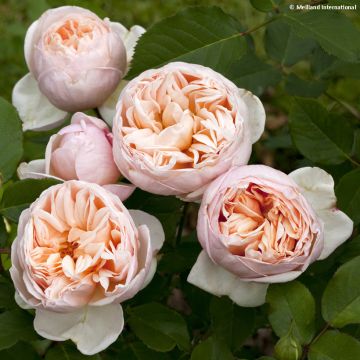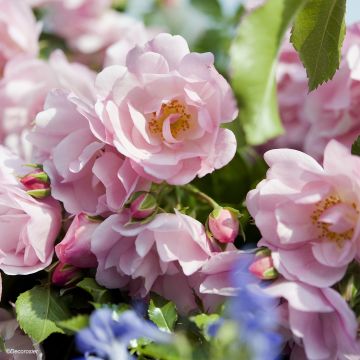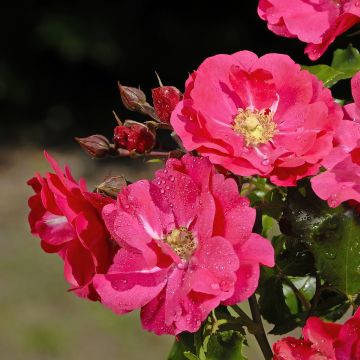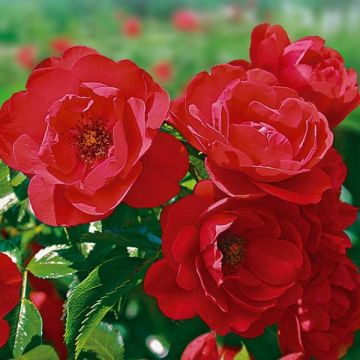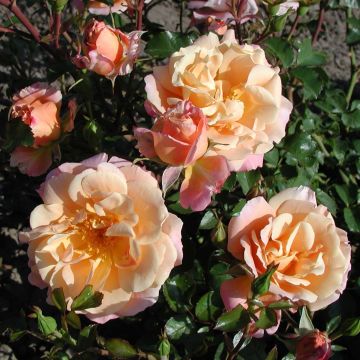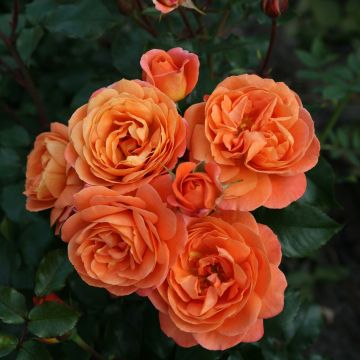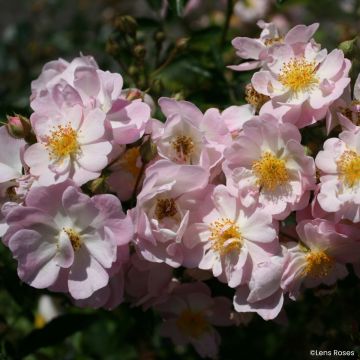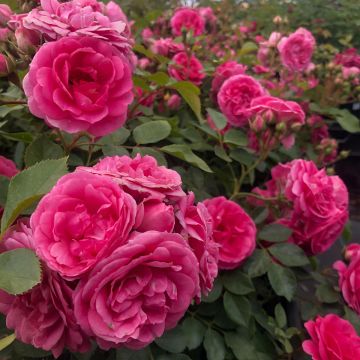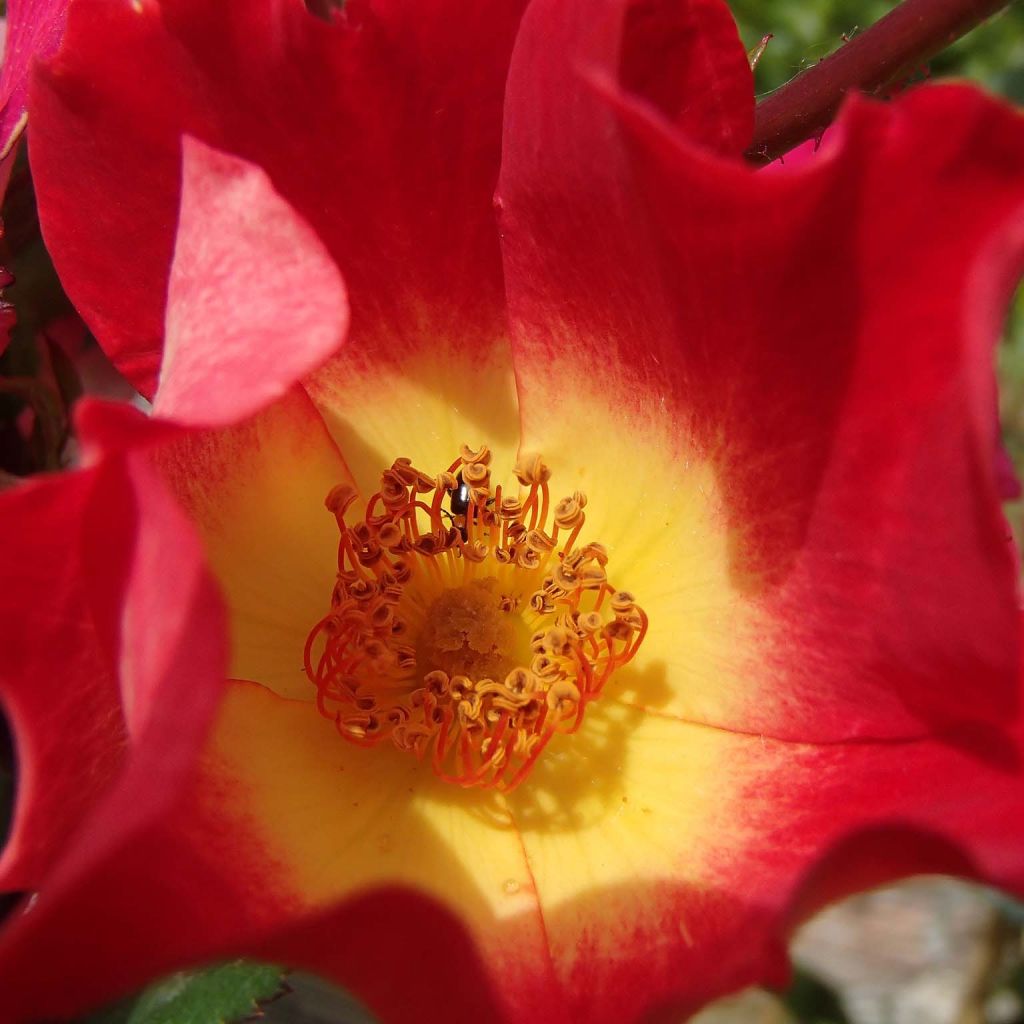

Rosa 'Cocktail' - Climbing Rose
View more pictures
Hide images
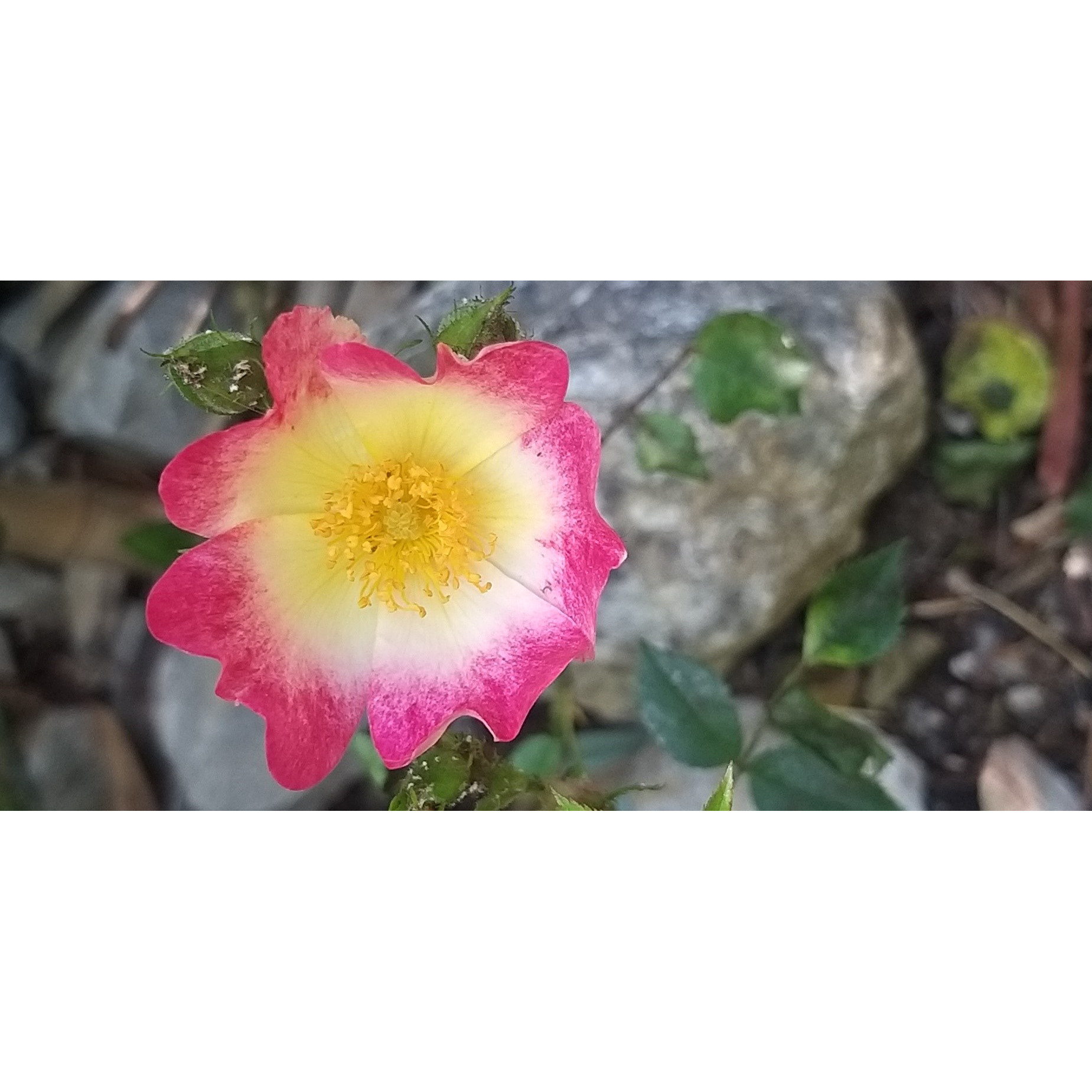
Thierry P.

N/A
Thierry P. • 84 FR
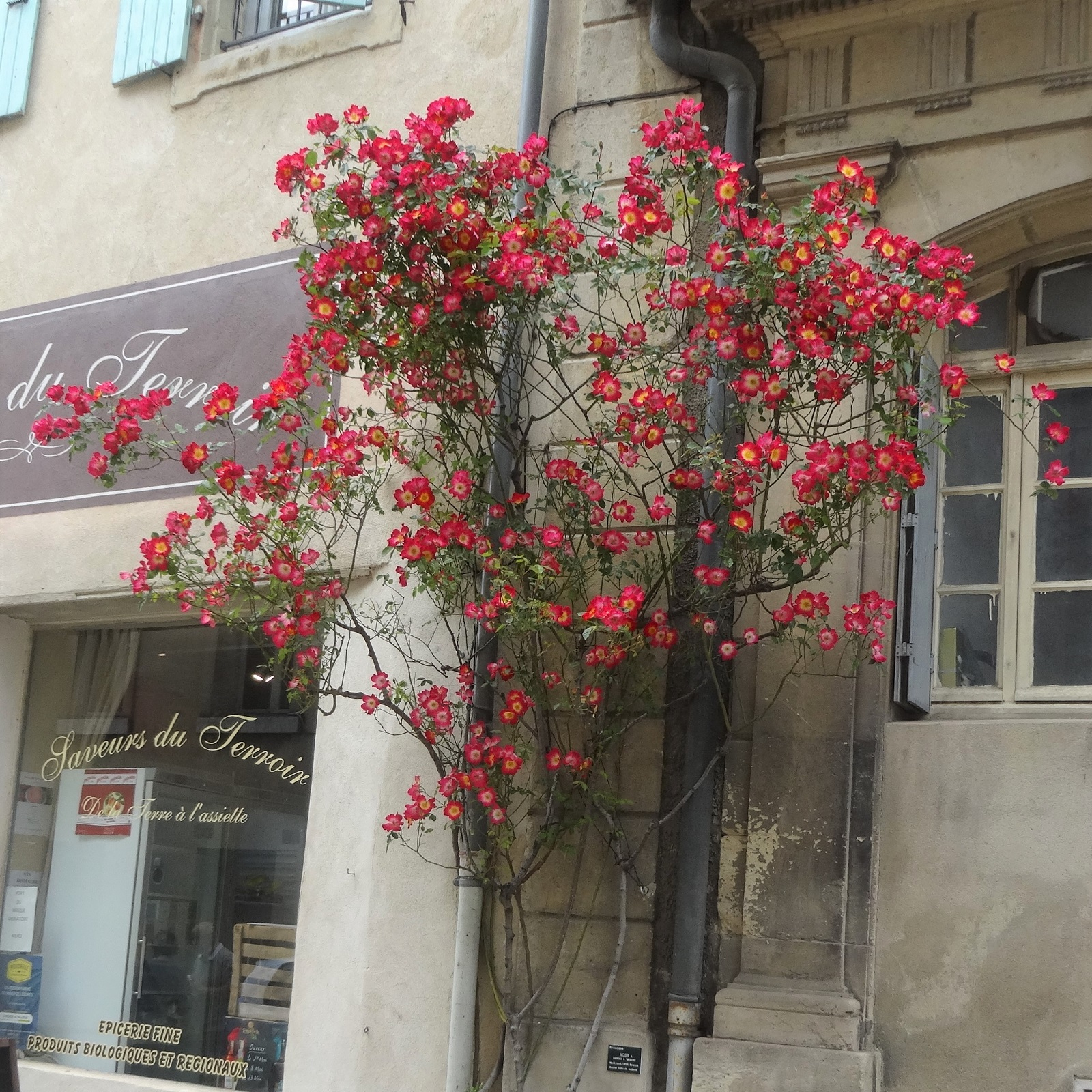
Paysage H.

Rosa Cocktail 'Meimick' (Grignan 26)
Paysage H. • 26 FR
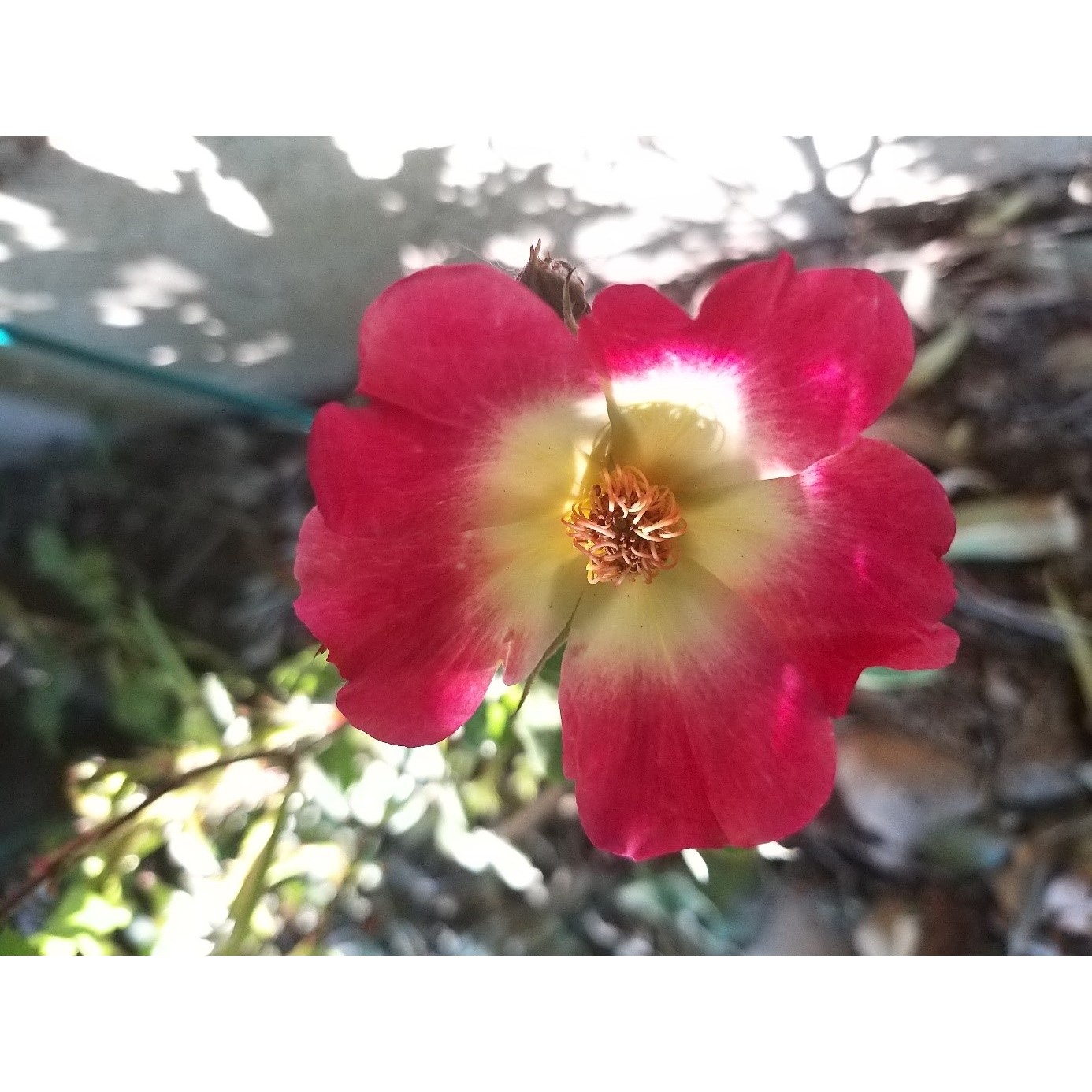
Thierry P.

Flowering in May - image 1
Thierry P. • 84 FR
Rosa 'Cocktail' - Climbing Rose
Rosa Cocktail® 'Meimick'
Meimick
happy the rose bush bloomed in the first year
Evy, 13/05/2025
Special offer!
Receive a €20 voucher for any order over €90 (excluding delivery costs, credit notes, and plastic-free options)!
1- Add your favorite plants to your cart.
2- Once you have reached €90, confirm your order (you can even choose the delivery date!).
3- As soon as your order is shipped, you will receive an email containing your voucher code, valid for 3 months (90 days).
Your voucher is unique and can only be used once, for any order with a minimum value of €20, excluding delivery costs.
Can be combined with other current offers, non-divisible and non-refundable.
Home or relay delivery (depending on size and destination)
Schedule delivery date,
and select date in basket
This plant carries a 6 months recovery warranty
More information
We guarantee the quality of our plants for a full growing cycle, and will replace at our expense any plant that fails to recover under normal climatic and planting conditions.
Description
The Rose 'Cocktail' Meimick is a French creation by Meilland that is unique: while it truly climbs only in hot climates, elsewhere, it forms a beautiful bush with a loose habit dressed in very healthy glossy foliage that blooms continuously and abundantly from June until autumn. Its flowers are simple and deliciously scented, radiant in geranium red, enhanced by a primrose yellow heart. This remarkable bush did not receive the "world's favourite rose" title by chance in 2015. Discover it!
The 'Cocktail Rose' is a creation by Francis Meilland in 1957. It results from cross-breeding with the famous multiflora rose Phyllis Bide and another variety whose parents are 'Independance' and 'Orange Triumph'. It is currently classified in the floribunda category. Robust, resistant and accommodating, 'Cocktail' will form a beautiful bush measuring 1.50 m (5ft) in all directions in cooler regions but will climb up to 2 m (7ft), or even more, in hot climates.
The flowering of this rose is abundant and almost uninterrupted from June until October if the soil remains somewhat moist. In hot and dry regions, the plant will go dormant in July-August, at the height of summer. The flowers are grouped in clusters at the end of straight stems. They are simple, composed of 5 petals, averaging 5.5 cm (2in) in diameter, light and vivid red, arranged in a flat cup around the primrose yellow heart surrounded by a very pale halo. At full bloom, the roses turn crimson red. They emit a light, complex and very pleasant fragrance, fruity and spicy simultaneously. The deciduous foliage is composed of spiny leaves, glossy green in colour. It is moderately resistant to diseases, especially in humid climates and still quite sensitive to severe frosts.
The Cocktail rose is a fantastic, easy-to-grow modern rose that should be seen more often in gardens. It deserves to be adopted in many regions, particularly successful in hot climates, where many other roses suffer throughout the summer. It can be trained against an east-facing wall, on an arch, or leaned against a fence. It also thrives in a shrub bed or a free or wild hedge, accompanied by Rosa complicata, which is easy to grow, the rose Hansa, Rosa rubiginosa (the sweetbriar) or Rosa rubrifolia with purple leaves. The colour of its flowering, with great vivacity, can be difficult to match: choose white or soft yellow flowers to accompany it or use it alone to brighten up a grey, somewhat sad wall. Finally, its flowers have excellent vase life.
Report an error about the product description
Rosa 'Cocktail' - Climbing Rose in pictures
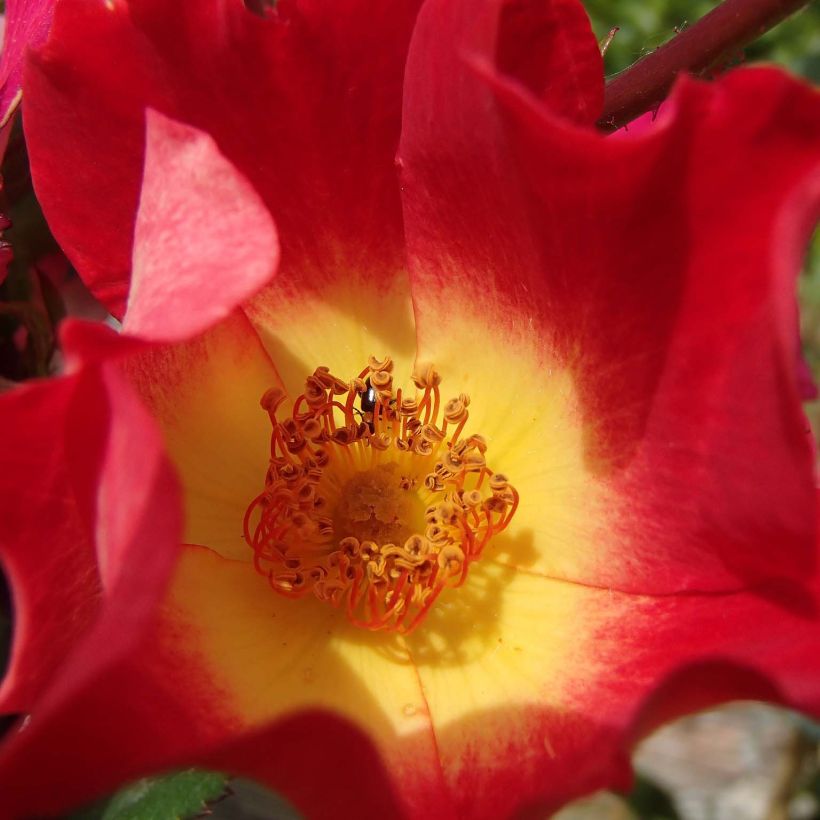

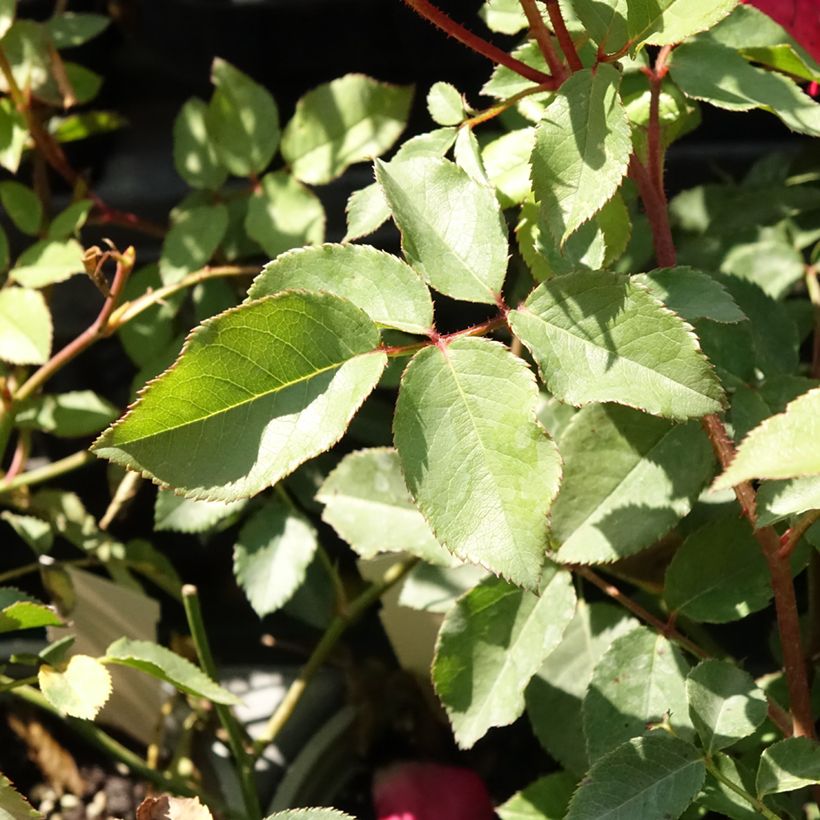

Plant habit
Flowering
Foliage
Botanical data
Rosa
Cocktail® 'Meimick'
Rosaceae
Meimick
Cultivar or hybrid
Rosa canina Laxa (4L/5L pot, Wrapped bare root)
Planting and care
The 'Cocktail' rose is not demanding on the nature of the soil as long as it is properly drained and sufficiently deep. It is hardy up to approximately -15°C (5°F), but it is somewhat fragile in our regions with long and cold winters where it may have some difficulties in blooming generously. It tolerates poor soils well, fears suffocating soils, and prefers light soils that remain slightly moist. It thrives in sunny regions and can withstand drought once well-established. It adapts to all gardens, as long as the exposure is chosen carefully and the planting is well cared for! Plant it in well-prepared and properly drained ordinary soil and a very sunny position in a cooler climate or rather semi-shaded in a hot climate. Rain often damages its flowers, so it is advisable to position them in a sheltered location if possible. Remove dead wood and old wood to promote the emergence of new floriferous branches, then train your rose to climb or grow as a bush, depending on your preference. In a hot climate, prune the branches by one-third in February-March.
Roses may appear stained or unsightly at the end of summer, but this natural phenomenon does not harm their development.
Planting period
Intended location
Care
-
, onOrder confirmed
Reply from on Promesse de fleurs
Similar products
Haven't found what you were looking for?
Hardiness is the lowest winter temperature a plant can endure without suffering serious damage or even dying. However, hardiness is affected by location (a sheltered area, such as a patio), protection (winter cover) and soil type (hardiness is improved by well-drained soil).

Photo Sharing Terms & Conditions
In order to encourage gardeners to interact and share their experiences, Promesse de fleurs offers various media enabling content to be uploaded onto its Site - in particular via the ‘Photo sharing’ module.
The User agrees to refrain from:
- Posting any content that is illegal, prejudicial, insulting, racist, inciteful to hatred, revisionist, contrary to public decency, that infringes on privacy or on the privacy rights of third parties, in particular the publicity rights of persons and goods, intellectual property rights, or the right to privacy.
- Submitting content on behalf of a third party;
- Impersonate the identity of a third party and/or publish any personal information about a third party;
In general, the User undertakes to refrain from any unethical behaviour.
All Content (in particular text, comments, files, images, photos, videos, creative works, etc.), which may be subject to property or intellectual property rights, image or other private rights, shall remain the property of the User, subject to the limited rights granted by the terms of the licence granted by Promesse de fleurs as stated below. Users are at liberty to publish or not to publish such Content on the Site, notably via the ‘Photo Sharing’ facility, and accept that this Content shall be made public and freely accessible, notably on the Internet.
Users further acknowledge, undertake to have ,and guarantee that they hold all necessary rights and permissions to publish such material on the Site, in particular with regard to the legislation in force pertaining to any privacy, property, intellectual property, image, or contractual rights, or rights of any other nature. By publishing such Content on the Site, Users acknowledge accepting full liability as publishers of the Content within the meaning of the law, and grant Promesse de fleurs, free of charge, an inclusive, worldwide licence for the said Content for the entire duration of its publication, including all reproduction, representation, up/downloading, displaying, performing, transmission, and storage rights.
Users also grant permission for their name to be linked to the Content and accept that this link may not always be made available.
By engaging in posting material, Users consent to their Content becoming automatically accessible on the Internet, in particular on other sites and/or blogs and/or web pages of the Promesse de fleurs site, including in particular social pages and the Promesse de fleurs catalogue.
Users may secure the removal of entrusted content free of charge by issuing a simple request via our contact form.
The flowering period indicated on our website applies to countries and regions located in USDA zone 8 (France, the United Kingdom, Ireland, the Netherlands, etc.)
It will vary according to where you live:
- In zones 9 to 10 (Italy, Spain, Greece, etc.), flowering will occur about 2 to 4 weeks earlier.
- In zones 6 to 7 (Germany, Poland, Slovenia, and lower mountainous regions), flowering will be delayed by 2 to 3 weeks.
- In zone 5 (Central Europe, Scandinavia), blooming will be delayed by 3 to 5 weeks.
In temperate climates, pruning of spring-flowering shrubs (forsythia, spireas, etc.) should be done just after flowering.
Pruning of summer-flowering shrubs (Indian Lilac, Perovskia, etc.) can be done in winter or spring.
In cold regions as well as with frost-sensitive plants, avoid pruning too early when severe frosts may still occur.
The planting period indicated on our website applies to countries and regions located in USDA zone 8 (France, United Kingdom, Ireland, Netherlands).
It will vary according to where you live:
- In Mediterranean zones (Marseille, Madrid, Milan, etc.), autumn and winter are the best planting periods.
- In continental zones (Strasbourg, Munich, Vienna, etc.), delay planting by 2 to 3 weeks in spring and bring it forward by 2 to 4 weeks in autumn.
- In mountainous regions (the Alps, Pyrenees, Carpathians, etc.), it is best to plant in late spring (May-June) or late summer (August-September).
The harvesting period indicated on our website applies to countries and regions in USDA zone 8 (France, England, Ireland, the Netherlands).
In colder areas (Scandinavia, Poland, Austria...) fruit and vegetable harvests are likely to be delayed by 3-4 weeks.
In warmer areas (Italy, Spain, Greece, etc.), harvesting will probably take place earlier, depending on weather conditions.
The sowing periods indicated on our website apply to countries and regions within USDA Zone 8 (France, UK, Ireland, Netherlands).
In colder areas (Scandinavia, Poland, Austria...), delay any outdoor sowing by 3-4 weeks, or sow under glass.
In warmer climes (Italy, Spain, Greece, etc.), bring outdoor sowing forward by a few weeks.































